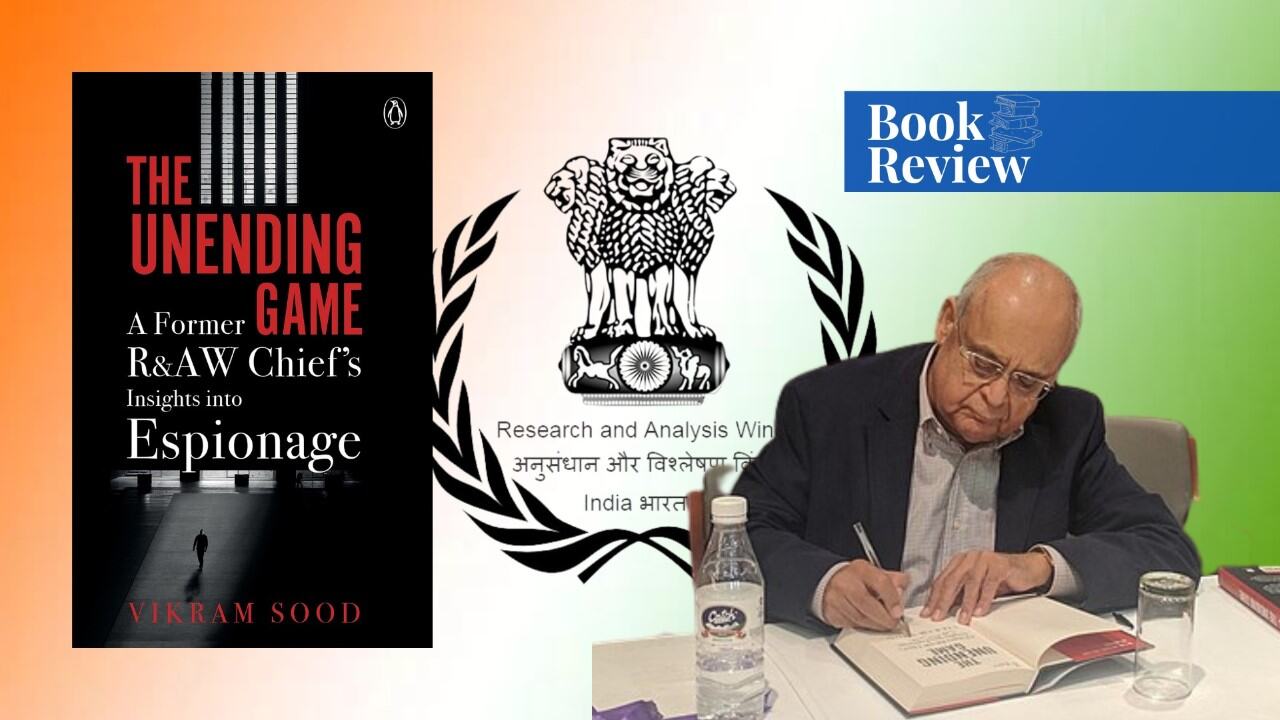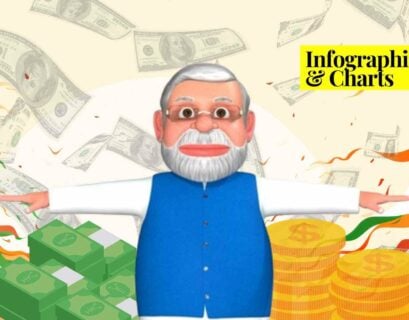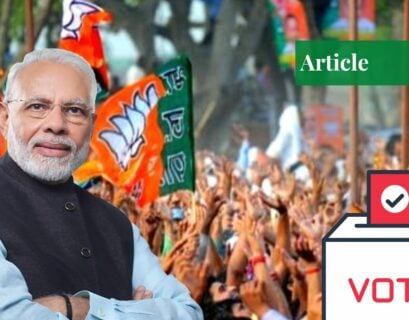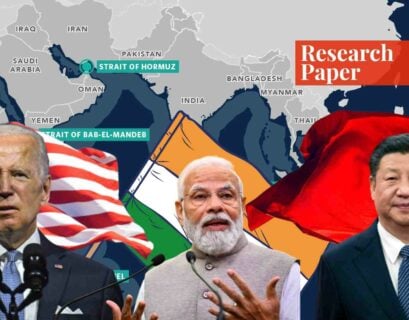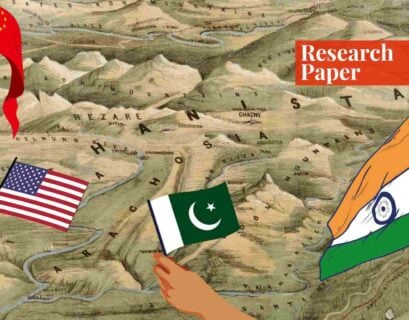Muhammad Osama Asghar is currently pursuing a Masters's degree in Geographical Information Systems and Remote Sensing from NUST, Islamabad. He holds a Bachelor's degree in Geophysics from Bahria University, Islamabad.
The art of gathering covert information is perhaps the most crucial element of any country’s external operations. Based on this clandestine information, a country keeps a shadow over its foreign policy contours, gains leverage while making diplomatic decisions, and sometimes implements coercive tactics.
Vikram Sood, a former chief of India’s premier intelligence agency, the Research and Analysis Wing (R&AW), has penned down The Unending Game: A Former R&AW Chief’s Insights into Espionage for the general public, intelligence, foreign policy experts, and professionals who wish to understand the workings of a secret agency.
The Unending Game by Vikram Sood talks about the various aspects of intelligence gathering, foreign policymaking, and what the future holds for this clandestine organisation. Sood has divided his book into three parts. Each part focuses on a separate chapter, starting with the organization of the agency, the workings of the agency, and what the future holds for the intelligence community with the advent of the latest technology.
While talking about the ‘deep state’, Sood takes the example of the so-called secret societies and draws a line between fact and fiction by comparing the two. A deep state, he says, is a tightly-knit body of powerholders who wish to perpetuate themselves and hold the resources to do so. Moreover, about secret societies, he says is a vague concept. A deep state is far more pragmatic than a secret society.
Prologue
Despite the fact that the intelligence line of work is possibly as old as any other, the Sood outlines the genesis of modern intelligence ops and tactics to WWI, commencing with British wiretaps of their foes’ radio broadcasts, which performed an essential function in the war’s eventual victory.
While taking us through the events of 1971, Sood talks about the lapse in intelligence during the fall of Dhaka. How India learned from its intelligence failures in 1965 to build a stronger cohesion of operatives with a proper network of conveying covert information. This covert action in East Pakistan by the Indian spies led to a situation where Pakistan had to surrender its territory.
Part I: Tradecraft
The first part of The Unending Game primarily focuses on what to do and what not to do as an intelligence and foreign office professional. The ‘tradecraft’ of intelligence depends upon a combination of HUMINT (Human Intelligence) and TECHINT (Technical Intelligence) while keeping other kinds of intelligence (SOCINT, IMINT, COMINT, OSINT, GEOINT) in mind.
“If one attempt in fifty is successful, your efforts are not wasted”
Sood emphasizes that no matter how good our technology gets, the human factor can never be surpassed. Moreover, Vikram Sood ends the first part by diving deep into the Asian Playing Fields, the spy games played in Asia, specifically in South East Asia. By taking examples from the Indo-Pak wars of 1965 and 1971, the author talks about the importance of a credible intelligence apparatus for a country, whether it be the battlefield or the diplomatic playground.
Part II: Inside Intelligence
In the second part of The Unending Game, Vikram Sood discusses the inside workings of a successful intelligence agency. He notes that it would need a strong hierarchy and business rules to operate more successfully. While taking interesting examples from the Cold War, Sood talks about the importance of surveillance.
Secondly, he discusses the diversion tactics that are played by top spies; the smoke-and-mirrors strategy keeps the enemy confused which leads to gaining an upper hand, either on the diplomatic front or the battle frontier. The author also talks about the sinister triangle that exists between a terrorist, a criminal, and a spy; how these three are interlinked in achieving a covert objective.
“In God we trust, the rest we monitor”
In the end the second part of his book, Vikram Sood takes a deep dive into the importance of deception and propaganda operations. Also known as psychological operations, he emphasizes the need for an intelligence organization to rally the general audience in its favour. This can be done in a number of ways that he has discussed in detail in the chapter ‘Controlling the Narrative’.
Part III: What Lies Ahead
While discussing the advent of the latest technologies, Vikram Sood talks about how pivotal it is to invest in the most crafty and contemporary assets when it comes to technology. Citing an example from the cyber-attack on Iran’s Natanz nuclear facility, the former R&AW chief emphasizes the technical aspect of the modern intelligence apparatus for a country.
“To work in intelligence is to live with perpetual failure”
Furthermore, Sood says that for any intelligence officer, it is important to learn to live with failure because, in this critical business of secrecy and power, one must always be prepared to live with a failed mission. One thing that is perhaps even more pivotal is to learn from these failures and grow on them. All while keeping the intelligence relevant, an operative, a handler, or an officer must carry on with his/her objectives.
Conclusion
The Unending Game is a good read that covers all areas of the administrative, executive, and policymaking branches of an intelligence agency. While citing important examples from history, Vikram Sood talks about the successes and failures of the security apparatus. This book is specifically for those aspiring students who wish to adopt a career in law enforcement and intelligence.
Keen insight into the foreign policy contours of different countries, specifically, India, can help students understand why intelligence is vital for diplomatic leverage. The classic carrots and sticks strategy is the core of any diplomatic negotiation and one cannot impose on the ‘sticks’ without credible and exploitable intelligence.
Moreover, we can use the teachings in his book to implement them in the current emerging situation of Pakistani politics. A general analysis will uncover several truths behind what is being delivered to us via mass media. The recent political power struggle in Pakistan can be a great test subject to implement the teachings from this wonderfully written book.
If you want to submit your articles and/or research papers, please check the Submissions page.
The views and opinions expressed in this article/paper are the author’s own and do not necessarily reflect the editorial position of Paradigm Shift.
